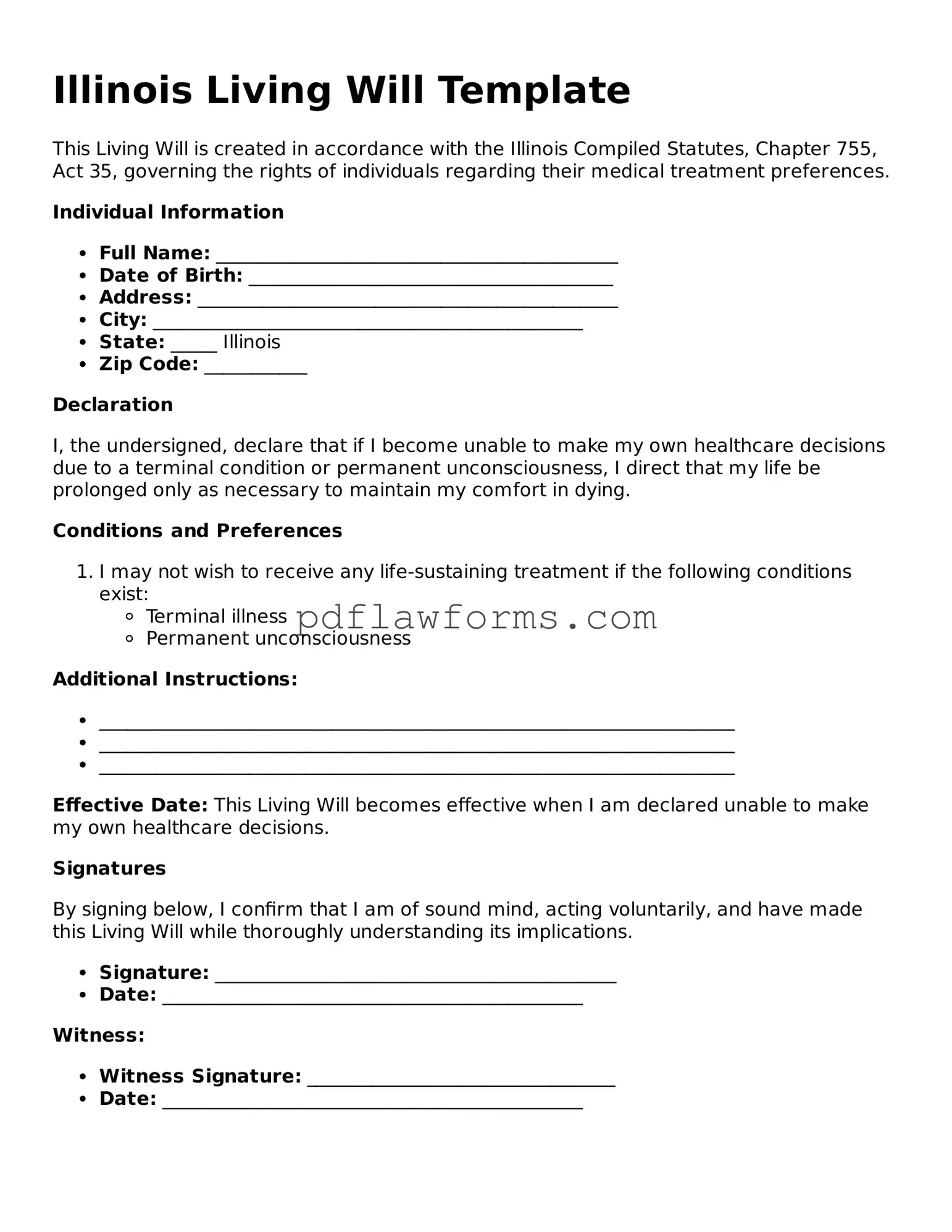Living Will Form for the State of Illinois
A Living Will is a legal document that outlines your wishes regarding medical treatment in case you become unable to communicate those wishes yourself. In Illinois, this form allows you to specify what types of life-sustaining treatments you want or do not want. Understanding how to fill out this form can help ensure your preferences are honored, so take the first step by clicking the button below to get started.
Make My Document Online

Living Will Form for the State of Illinois
Make My Document Online
You’re halfway through — finish the form
Edit and complete Living Will online, then download your file.
Make My Document Online
or
⇩ Living Will PDF
